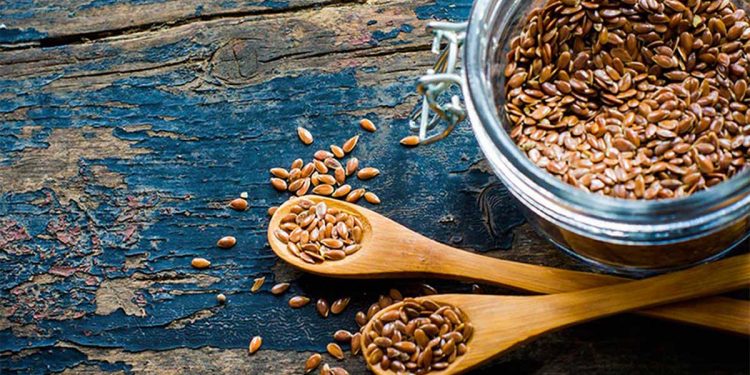Did you know? The linen fabric that keeps you cool in the sweltering summer season and the linseed oil that is widely used in woodwork and carpentry, all come from the flax plant! It is this plant that also provides us the wonder seeds that are valued as a nutritional dietary superfood yes, flaxseeds!
Flaxseeds, linseeds, or alsi as they are commonly known to have been grown and cultivated for over 6,000 years. They are as small as sesame seeds but the nutrition they pack is enormous! Just 1 tablespoon of flaxseeds contains good amounts of omega-3 fatty acids or “healthy fats”, protein, fiber, iron, magnesium, phosphorus, calcium, vitamin, potassium, and so much more! That’s quite a tall order for a tiny seed, isn’t it? But you know this is not it! the health benefits of flax seeds go beyond your imagination, let’s get to know them.
Types of Flaxseeds
There are two basic types of flax seeds readily available in stores, brown and golden.
Brown seeds are considered to have a stronger nutty flavour compared to golden ones but both of them add the same nutritional value to your diet, so you can choose your flax seeds freely.
Flaxseed contains a plant-based type of omega-3 fatty acid called Alpha-linolenic acid, or ALA, which is known for its anti-inflammatory effects and provides improved circulation. As per the flax council of Canada, there is nutritional equality between brown and golden flax seeds. Although, brown seeds contain slightly higher amounts of ALA than the golden variety.
Health Benefits of Flax Seeds
Interestingly, the health benefits of flax seeds are mainly attributed to the enormous amounts of omega-3 fatty acids, lignans, and fiber they contain.
#1 Best Source of Lignans
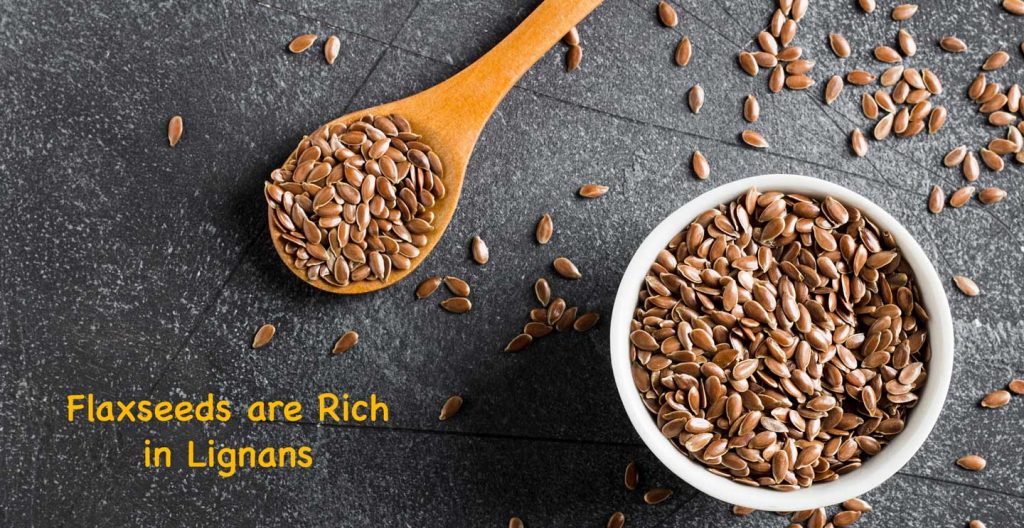
Flaxseeds contain plant compounds that have powerful antioxidant properties and act in a similar way as the estrogen hormone. They benefit us by promoting cellular health, reducing free radicles throughout the body, and balancing hormones.
They help balance the estrogen levels and provide you with the good estrogen that your body needs. Thus, flaxseeds are known to be great for females during menopause.
Lignans are also well known for having antibacterial and antiviral properties, so consuming flaxseeds can reduce symptoms related to cold and flu, and in turn, boost your overall immunity.
Now, since you have an idea of how important lignans are for our bodies, you would be surprised to know that flax seeds contain up to 800 times more lignans than other plant foods. This is backed by research too!
Owing to the presence of a large amount of these lignans, flax seeds are known to be effective in reducing the risk of cancer in both men and women. Studies have shown that women who regularly eat flax seeds are at a much lower risk of breast cancer, particularly postmenopausal women.
Promising results have been shown in lowering the risk of prostate cancer in men too as lignans block the enzymes that are involved in the metabolism of hormones and interfere with the growth and spread of tumor cells.
#2 High in Omega-3 Fatty Acids

Omega-3 fatty acids are the “good” fats that are known to have heart-healthy effects and our body requires them to function optimally.
These omega-3 fats cannot be made by our bodies, so the only way to get them is through diet. If you’re a vegetarian or a vegan, it can be all the more challenging for you to get your daily omega-3 fix. So, flaxseeds are surely the go-to seeds for you as just 1 tablespoon of ground seeds contains around 1.8 grams of Omega-3.
Studies have shown that flax seeds are abundant in a type of omega-3 fatty acid called Alpha-linolenic acid (ALA).
ALA has anti-inflammatory effects and studies have also linked it to a reduced risk of stroke and other heart conditions.
#3 Aids Digestion

Fiber is essential for keeping our digestive tract working smoothly and there two types of dietary fibers – soluble and insoluble.
Soluble fiber dissolves in water and is known to improve digestion in several ways. As per research, it also helps reduce cholesterol and blood sugar levels, thereby reducing the risk of diabetes.
Insoluble fiber speeds up the transit of food in the digestive tract and helps increase stool bulk. Thereby, helps significantly in preventing constipation.
So, if you’re prone to digestive issues, these miraculous seeds are surely worth a try as the two types of fibers work together effectively to support digestive health.
There are various other tried-tested foods that you can have when the dreadful acidity or poor digestion-related symptoms start showing up. To know, read 10 Instant Effect Home Remedies for Acidity.
#4 Boosts Immunity
Immunity is the body’s ability to defend itself successfully against foreign substances. Alpha-linolenic acid (ALA) as well as lignans present in flaxseeds, help decreases inflammation and promote the healthy functioning of the immune system.
Also, the Proteins in flaxseeds contain amino acids like Arginine, Aspartic acid, and Glutamic acid. As per studies, these amino acids are found to protect our bodies from a variety of fungal Infections, thereby improving our overall immunity,
#5 Improves Heart Health
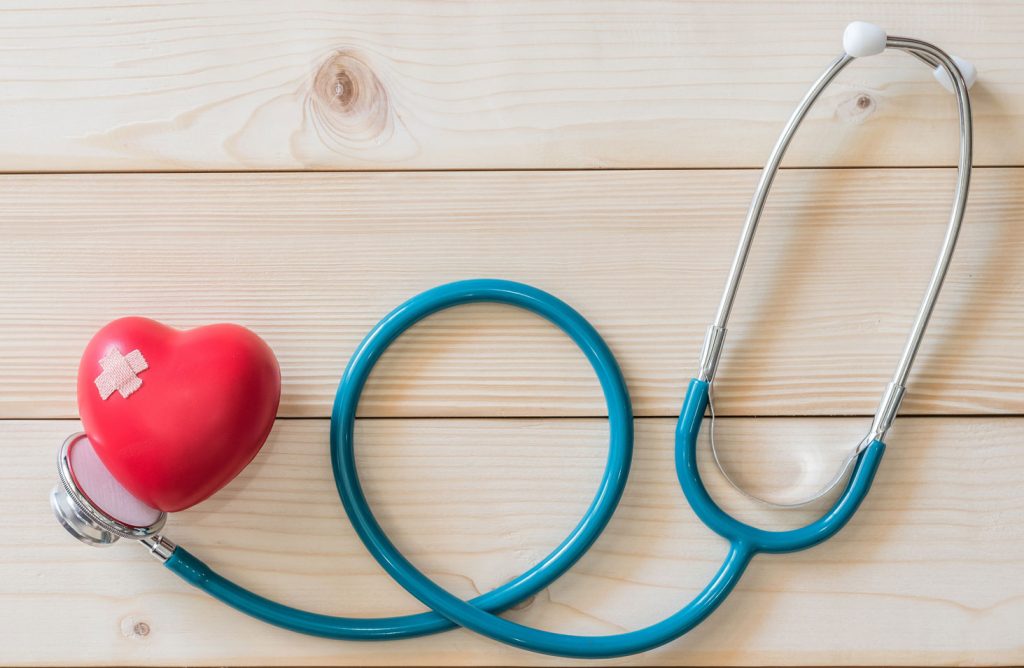
The American Heart Association (AHA) recommends eating foods rich in fiber and omega-3 fatty acids to boost heart health.
Good news! Flaxseeds are rich in both of these. The soluble fiber and proteins in flaxseeds are known to be responsible for the reduction of cholesterol levels in the blood. The soluble fiber binds to the cholesterol and pushes it out of the body, this prevents or slows down the absorption of cholesterol in the blood. This is backed by research too!
Flaxseeds also contain Phytosterols which help prevent the absorption of cholesterol in the intestines and thereby reduce the bad cholesterol in the body. Supporting this is a study, which showed that people who consumed flaxseeds regularly showed a decrease in the “bad” or LDL cholesterol.
This is not it! the enormous amounts of omega-3 fats in flaxseeds can be accounted for reducing blood pressure and preventing strokes.
So, just by taking a spoonful of these wonder seeds, you can keep your heart healthy!
#6 Reduces Hot Flashes

Women going through menopause commonly observe symptoms like hot flashes and night sweats. Flaxseeds can help with these too! The antioxidant property of flaxseeds helps regularize the hormonal imbalance responsible for these hot flashes.
As per a study, lignans that are found in large amounts in flaxseeds, have an effect similar to the estrogen hormone and this property is responsible for easing the hot flashes. It is known that women who consumed flaxseeds, not only experienced a reduction in the frequency of hot flashes but the intensity too.
This is not it, flaxseeds are also known to help improve fertility in women. They promote normal ovulation and restore hormonal balance. So, all you ladies out there, try including flax seeds in your daily regime and take a step forward towards your wellness.
#7 Helps ease Arthritis Symptoms

According to the Arthritis Foundation, flaxseeds can help reduce joint pain and stiffness.
Flaxseeds contain a plant-based type of omega-3 fatty acid called alpha-linolenic acid, or ALA, which is linked to providing improved circulation and anti-inflammatory effects.
To boost your bone health and ease arthritis-related symptoms, add flaxseeds to yogurt, you can also drizzle some honey on top. Not only does it taste delicious but is also packed with nutrients like calcium, magnesium, and phosphorus, which are imperative for bone health.
Various other sources can give you your daily calcium fix and keep your bones strong and healthy, to know these read Top 12 Calcium-Rich Foods.
#8 Lowers Blood Sugar

Flax seeds are one of the best foods when it comes to controlling diabetes. It is known that flaxseeds can improve insulin sensitivity as they keep blood glucose levels stable. Research has shown that this is due to the presence of insoluble fiber content in flaxseeds, which slows down the release of sugar into the blood.
As per a study, people with type 2 diabetes who consumed 10–20 grams of flaxseed powder daily for at least one month, saw a drastic reduction in their blood sugar levels.
#9 Aids Weight Loss

Flax Seeds form an essential part of many diet programs, as they are high in fiber, protein, and low in carbs. The soluble fiber in flaxseeds is called mucilage and gets a gel-like consistency when combined with water. This fiber along with high protein in flaxseeds leads to increased feelings of fullness and helps stave off frequent hunger pangs, which in turn, avoids the intake of surplus calories and contributes to your weight loss efforts. This is backed by research too!
As per another study, people who supplemented their diet with flaxseeds led to a reduction in body weight, body mass index (BMI), and waist circumference.
Wondering what should be your ideal weight based on BMI and waist circumference? Weight and Height Chart: Ideal Weight for Men and Women, would help you with it.
So, if you usually struggle from mid-morning energy slumps, instead of giving in to your sugar cravings and getting energy, try adding flaxseeds to your morning breakfast meal and see the difference for yourself!
Before moving on, here’s a shoutout to all the keto dieters, flax seeds and flaxseed oil are highly recommended on keto for their low carb properties and high quantities of essential fatty acids. To more about the foods you can and cannot eat on the keto diet, read The Ketogenic Diet: A Detailed Beginner’s Guide to Keto.
#10 May Prevent Neurodegenerative Diseases

Flaxseeds are one of the best omega-3 fatty acid sources, which is essential for brain health throughout your life right from early cognitive development in babies to imparting learning and memory in adults.
Brain cells with high levels of omega-3 in their membranes are thought to be better at communicating with other cells, an important process for brain functioning.
When omega-3 is absorbed by the body, some of it is broken down into other molecules that have important roles in the brain including protecting cells from oxidative stress. So, taking your daily dose of flaxseeds may prevent Alzheimer’s and other brain-related diseases in the long run.
#11 Good for Skin

Flaxseeds are best known in the skincare world for their anti-inflammatory properties, which help in minimizing skin irritation or rashes.
It is thought that the healthy fatty acids found naturally in flaxseeds act to balance out the skin’s own oils which rehydrate dry skin and also reduces any inflammation thereby, helping skin to repair at a faster and more efficient rate.
The antioxidants found in flaxseeds also help the skin to protect against free radicals and UV rays.
Isn’t it amazing to know how these tiny seeds can do so much but surprisingly this is just the tip of the iceberg for flaxseeds when it comes to skincare! As we age, our skin shrinks and flattens out, losing its elasticity. The protein and essential fatty acids found in flaxseeds can help prevent these from happening. Flaxseed oil applied topically can give your skin a plumper appearance and help to repair the skin’s cells, thereby showing a marked improvement in elasticity, firmness, tone, and texture. Consuming ground flaxseeds in your diet would also lead to similar effects.
#12 Gives you Strong and Healthy Hair

Are you suffering from hair fall? or have dry, damaged, and lifeless looking hair? If yes, then there is good news as flaxseeds can help with all of these and this I can confidently tell from my personal experience. I used to have tons of hair falling out each time I brushed them and it used to freak me out totally but since the time I added flaxseeds to my daily regime, I can see a drastic difference in my hair quality and hair fall.
There are several reasons why flax seeds are healthy for your hair. They are rich in Vitamin E, which promotes good scalp health by reducing free radical damage. They also help improve circulation which promotes hair growth and slows down hair breakage. Additionally, they can also help prevent premature greying of hair.
Owing to the enormous amounts of omega-3 fatty acids, they keep the hair nourished and prevent drying, especially during winters. Also, the presence of nutrients like Vitamin B, magnesium, manganese, selenium, and copper boost hair growth. Here’s a piece of great news for men specifically as flaxseeds help fight the enzyme that leads to male pattern baldness.
You can consume flaxseeds daily or even apply flaxseed or linseed oil to your scalp for reaping all the goodness.
How much Flaxseed do you Need Daily?
Studies have shown that just 1 tablespoon (10 grams) of ground flax seeds or 1 to 2 tablespoons of flaxseed oil per day, can help you reap all the health benefits.
Flaxseeds are safe to consume and you can more as well, however, it’s recommended to keep serving sizes to less than 5 tablespoons (50 grams) per day.
Ways to Consume Flaxseeds
As you have seen, flax seeds supply a wealth of health benefits. However, to take full advantage of those perks, there’s a “right” way to eat them.
Keep in mind the following points to reap the maximum benefits of flaxseeds:
- It is recommended to use ground flaxseeds instead of whole flax seeds as whole flaxseeds are likely to pass through your intestines undigested. In other words, healthful fats and other nutrients won’t get absorbed into your bloodstream. You can also find ground flaxseed available at stores (called flaxseed meal or flaxseed flour).
- Grind small batches of flaxseeds and keep in an airtight jar in a cool dark place to preserve their goodness. This is because the oils in flaxseeds are delicate and can begin to break down when they are exposed to air and light. Flaxseed oil can also go rancid if not used efficiently, so try to purchase smaller amounts of oil at a time.
Like many seeds, flaxseeds have a slightly mild and nutty flavor, making them ideal for both sweet and savory foods. Let’s figure out the different ways how you can add this versatile ingredient to your daily regime.
Add to Water
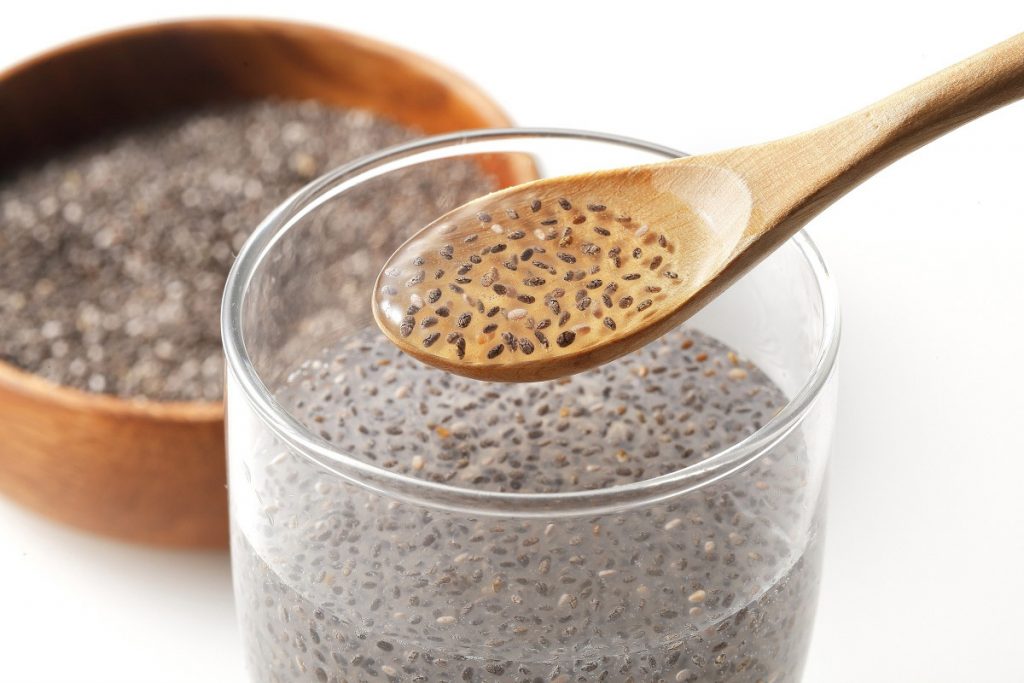
Many people who are on a weight loss journey add flaxseeds to a cup of hot water and drink it an hour before meals to indulge less in meals. You can also squeeze some lemon juice to add a boost of vitamin C to your flaxseed water.
You can also simply have a spoonful of flaxseeds with drinking water.
Add to Breakfast Cereal Bowls and Smoothies
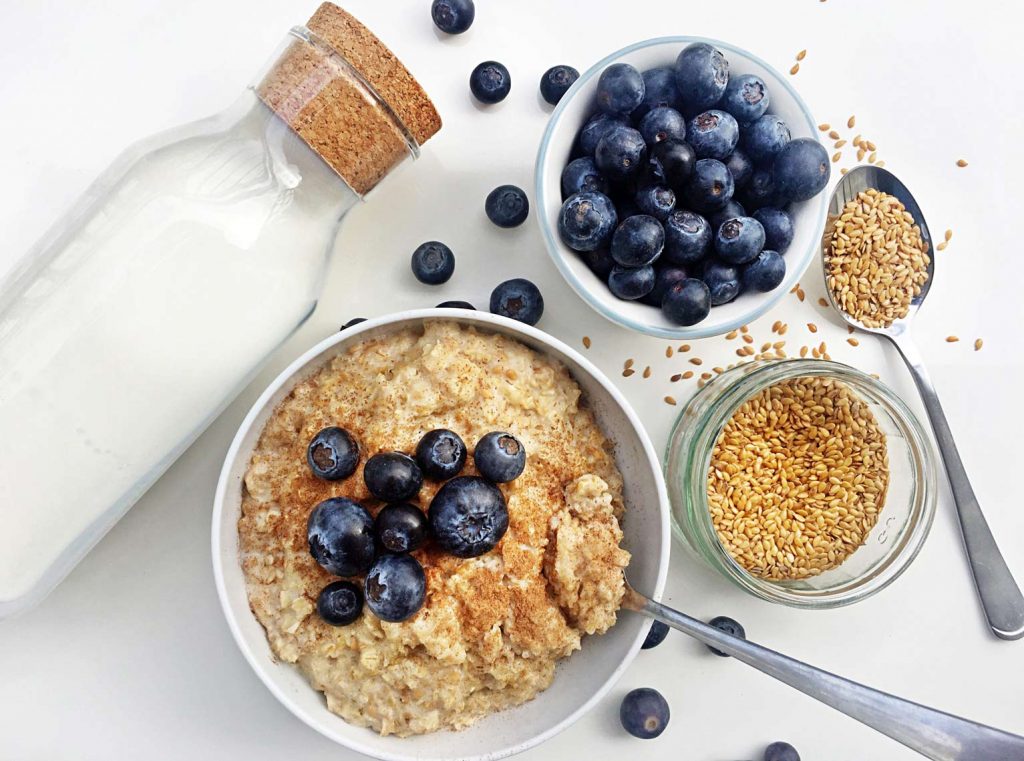
Adding flaxseeds to your breakfast bowls, morning smoothies, or shakes, can provide a healthy dose of Omega 3s, magnesium, and fiber. So, go ahead and jumpstart your day, the healthy way!
Drizzle on Salads
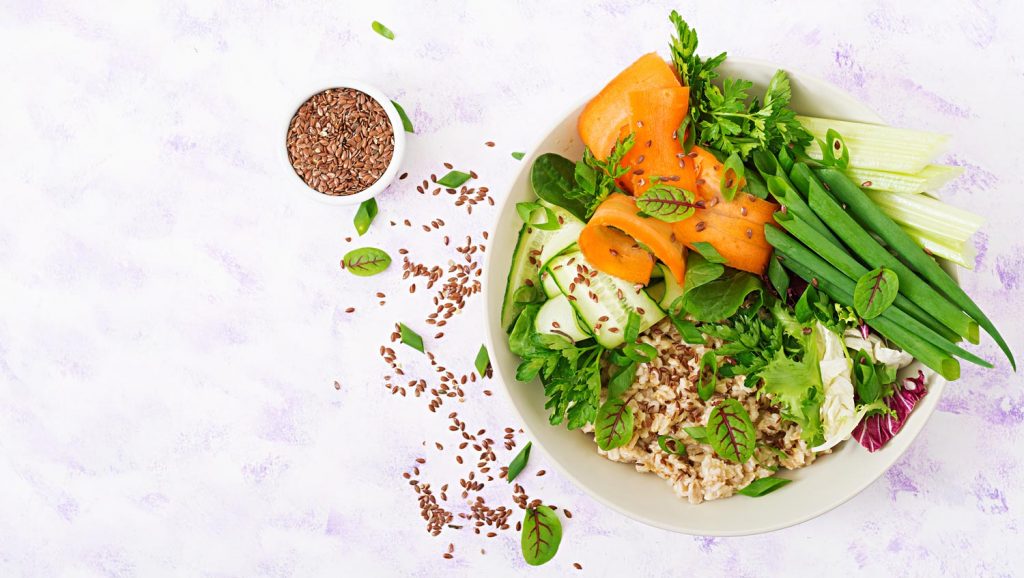
You can add flaxseeds to your salads for that mild nutty flavour or also drizzle some flaxseed or linseed oil as a dressing and power-pack your salads with the ultimate goodness of these seeds.
You can also add flaxseed oil to roasted or sauteed vegetables.
Hers’s a tip, avoid cooking with flaxseed oil as it has a low smoking point.
Add them to Batters
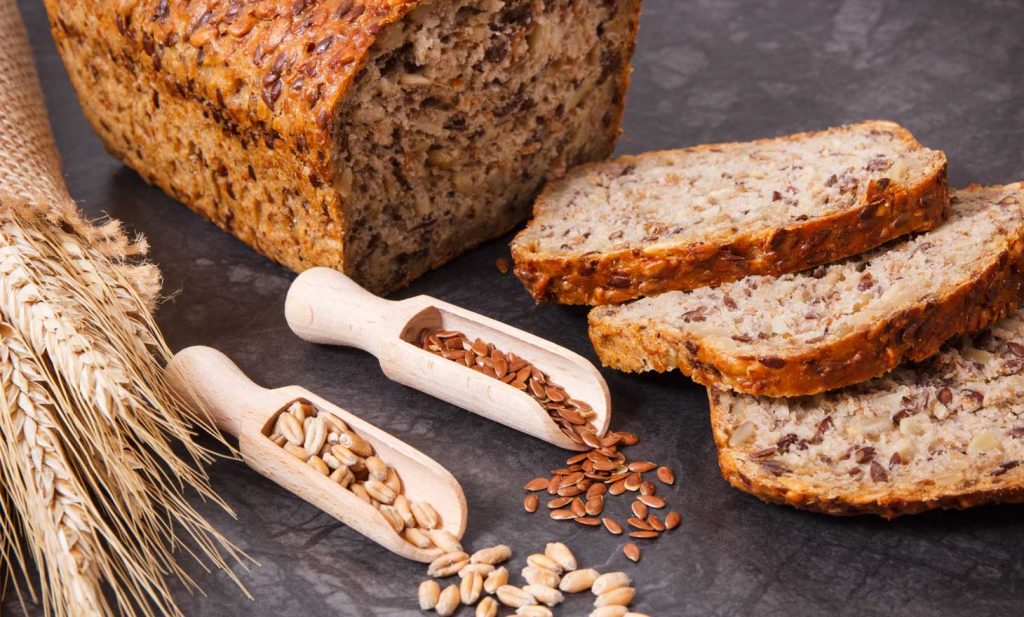
Are you fond of baking? If yes, then here’s an amazing ingredient to increase the nutritional value of your foods. Coarsely ground flaxseeds can be added to your cake, muffins, or bread batters to boost texture and nutrition.
Use as an Egg Substitute
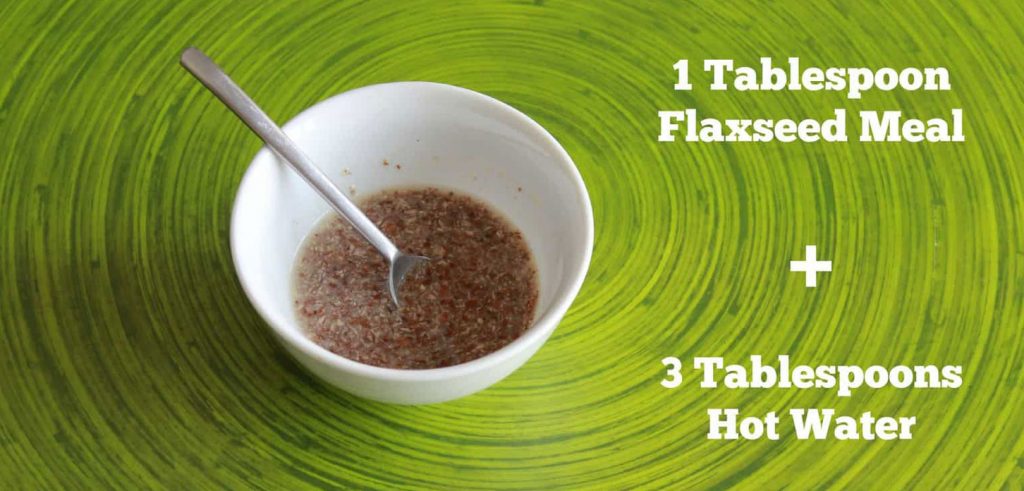
Yes, you read it right! flax seeds can be used as a great substitute for egg in most of the recipes. So, if you’re a vegetarian, vegan, or do not like eggs then you no more have to overlook the recipes that contain egg. Amazing right?
Take one tablespoon of flax seeds and three tablespoons of water, combine them, and this would replace one egg! The seeds have a gelatinous quality and emulsify just like the way an egg does.
Who Should Avoid Flaxseeds?
Although the benefits of flaxseeds are plenty and they are safe for most people, some people should avoid them. Pregnant women and breastfeeding mothers should not supplement their diets with ground flaxseeds.
Also, people who are preparing for surgery should keep flax seeds out of their diet for a could of weeks leading up to their procedure, as they may decrease the blood’s ability to clot.
In general, if you are taking medication for any particular condition, it is always advisable to consult your healthcare provider before starting anything new.
Summary
As they say, “never judge a book by its cover”, the same goes for these itsy-bitsy looking seeds called flaxseeds, linseeds, or alsi. Though tiny, they are highly rich in the omega-3 fatty acids, lignans, fiber, protein, essential vitamins, minerals and so much more! All of these provide potential health benefits and protect you from a host of ailments like diabetes, high blood pressure, and cholesterol, Alzheimer’s, etc. Flax Seeds also contribute to your weight loss efforts and give you beauty benefits like nourished skin and healthy hair, what more could you ask from these tiny seeds! Flaxseeds can be eaten on their own or crushed and cold-pressed to release flaxseed oil. So, are you ready to add the fiber and omega-3 powerhouse to your diet? Go for it and get healthy inside out!



